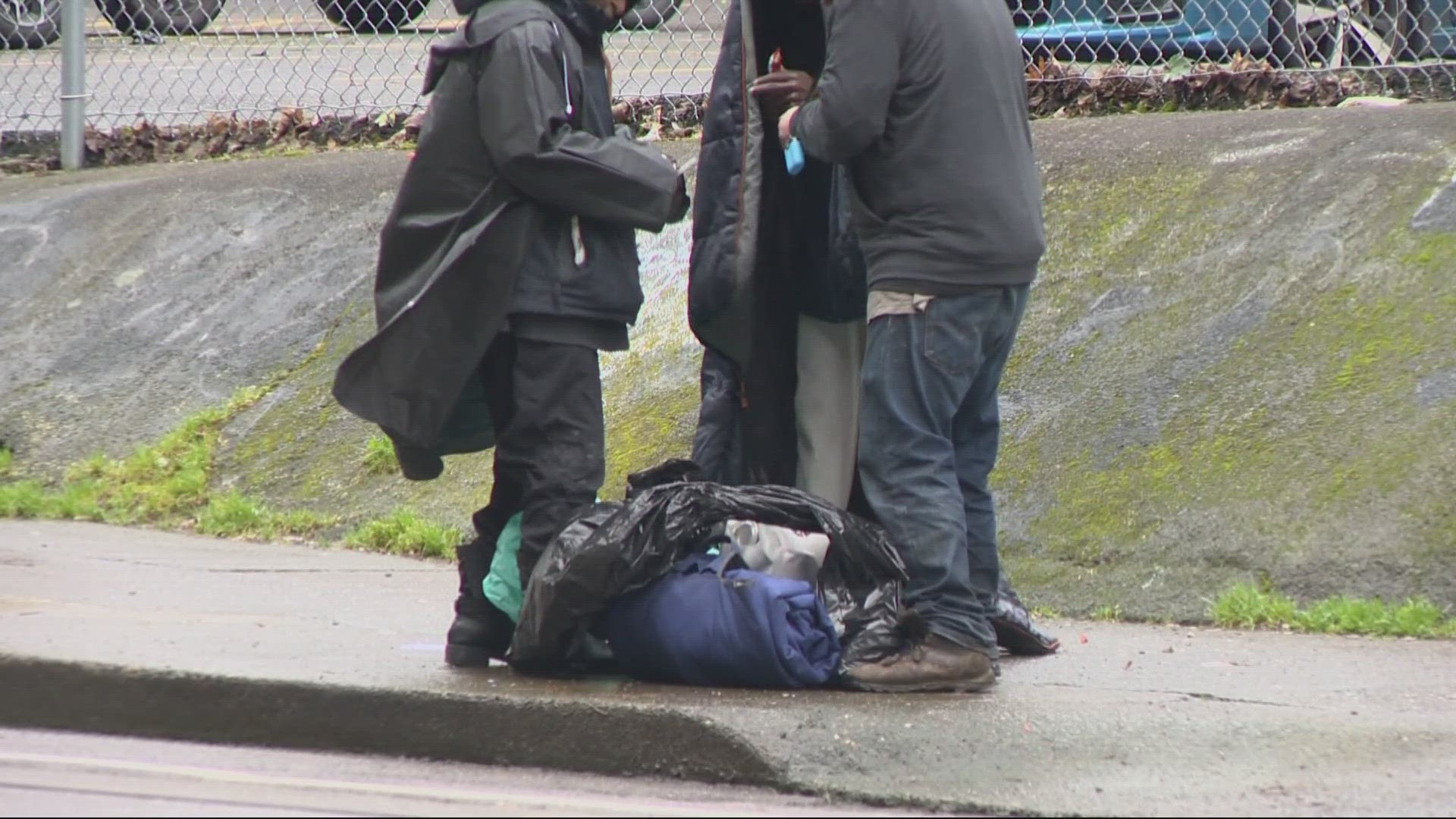PORTLAND, Ore. — Earlier this month, the task force behind Portland’s 90-day fentanyl state of emergency paused bottle return services at the Jefferson Street Plaid Pantry and the neighboring Safeway to cut down on bottle money being used for drugs.
But those at Plaid Pantry aren't seeing much improvement overall.
"We've been in business for 60 years. This used to be one of our flagship stores, and now, I can't even keep it safely open 24/7,” said Jonathon Polonsky, president and CEO of Plaid Pantry, a popular convenience store accepting up to 50 individual bottle returns. “We have people who fear for their personal safety and end up quitting."
The Jefferson Street location is known to attract homeless people and public drug use. Sue Perry, who lives in a nearby apartment building, has watched the crisis grow over seven years.
“It's always bad; it's gotten worse since the longer I’ve been here,” she said.
A Safeway spokesperson told KGW that the decision to pause bottle redemption services resulted in a downturn in criminal activity, and they appreciate the continued partnership with the city and state.
“Safeguarding our associates and customers remains Safeway's highest priority. We have seen a significant downturn in criminal activity at our 10th and Jefferson store since the exception for accepting containers was put in place. We appreciate the continued partnership with city and state officials, as well as law enforcement, to ensure a safe and welcoming environment for our customers and associates.”
Those at Plaid Pantry have a different experience.
“The issue has just moved six blocks away, so now, I’ve got two other stores where the volume for bottles and cans that was at this location have simply moved to those locations and all the negative things along with it,” Polonsky said, referring to the location four blocks away by Portland State University and Southwest 1st Avenue and Lincoln Street.
“It's gotten worse (with) more people,” said Jerry Taylor, who owns House of David barber shop next to the Lincoln Street Plaid Pantry. “They're doing it right out in the street, tin foil smoking. It's a huge problem.”
Phillip, who is homeless and addicted to fentanyl, agrees.
“How does that solve the problem? What is it going to do?” asked Phillip.
He said his fentanyl addiction depends on can money and pausing the redemption services at some locations won’t stop his habits "at all."
"We'll figure out how to get around it; I’ll figure out how to get around anything that stops me from surviving … if they stop me from doing that, I won't be able to live. They'll have to give me a hospital room," Phillip said.
“America is free. If I want to be a drug addict, why can't I choose to be a drug addict, be homeless and collect cans and turn them in for money to buy drugs with? That's what I’m going to do with it. Why can't I do that?” he declared.
The pause on bottle return services at those two locations was only for 30 days, and that's about to end.
Polonsky says he has not once been contacted by the fentanyl state of emergency task force but would support the pause on bottle return services being extended. He would also like to see Plaid Pantry only accept bottles during the day as opposed to 24/7. If that doesn't work, he's considering closing the location on Southwest Jefferson Street once its lease is up in four years.
“We can't just keep moving and pushing the problem from block to block to block. There needs to be a real solution … This is not a Plaid Pantry problem; this is a city problem,” said Polonsky.

